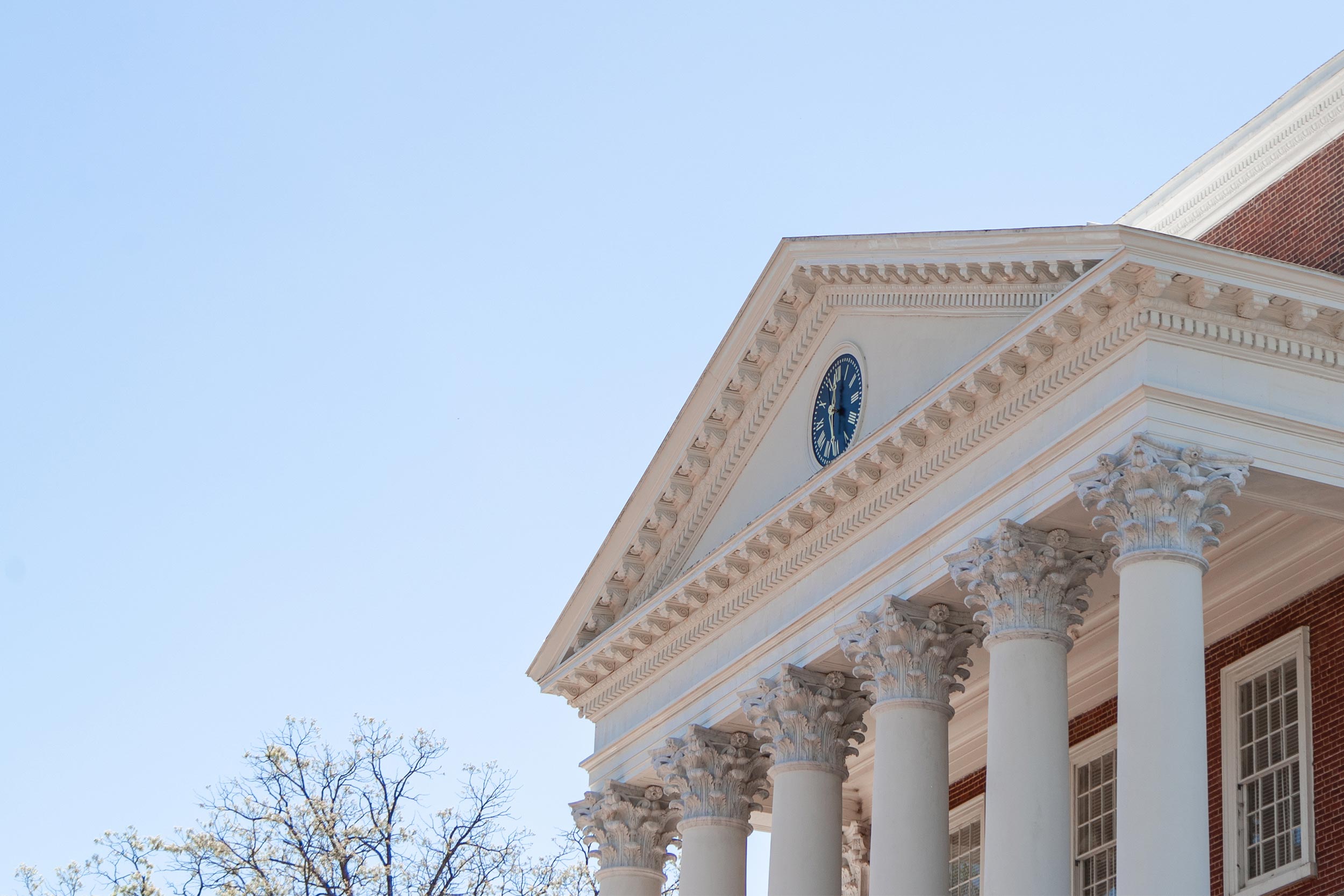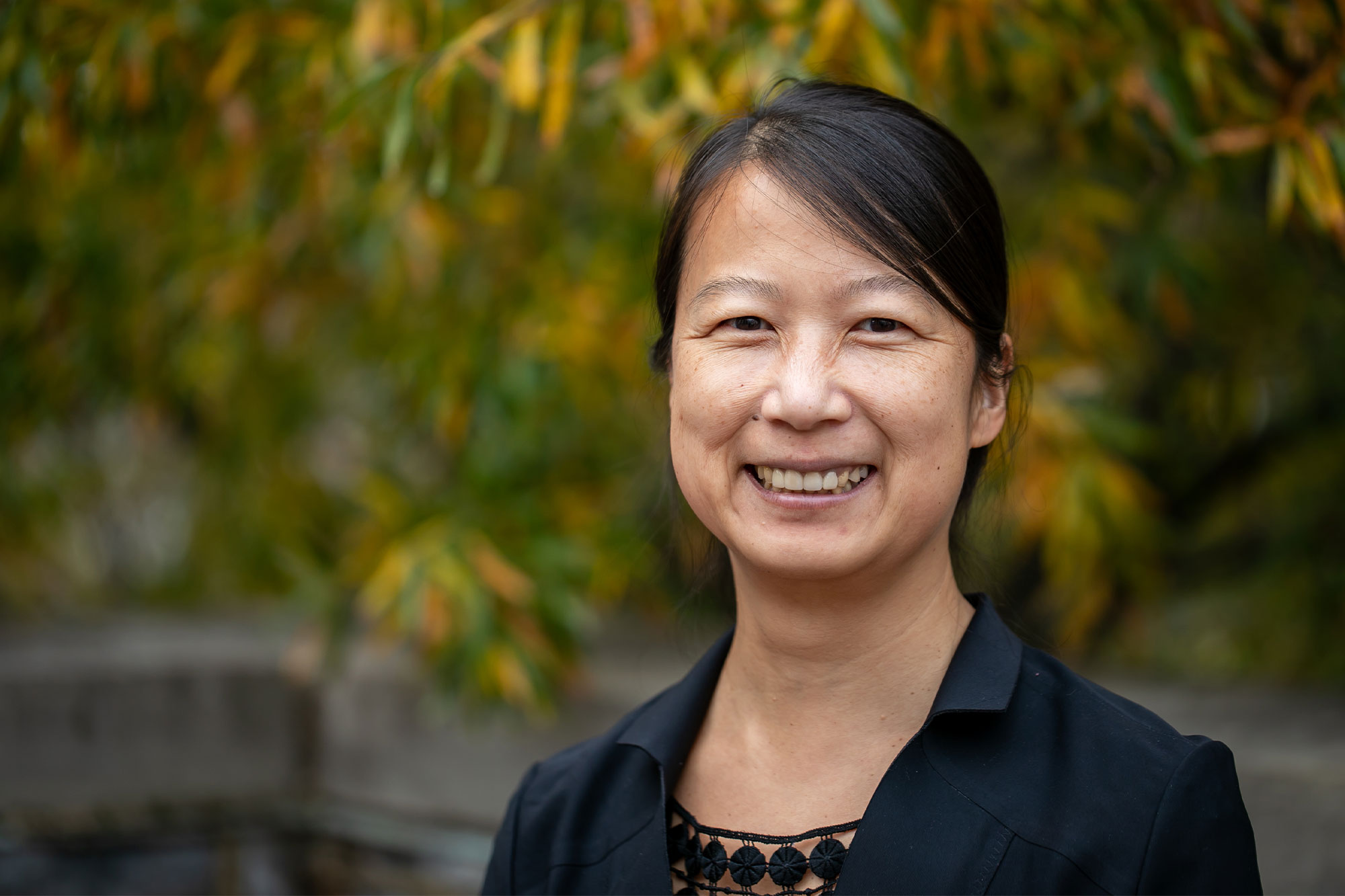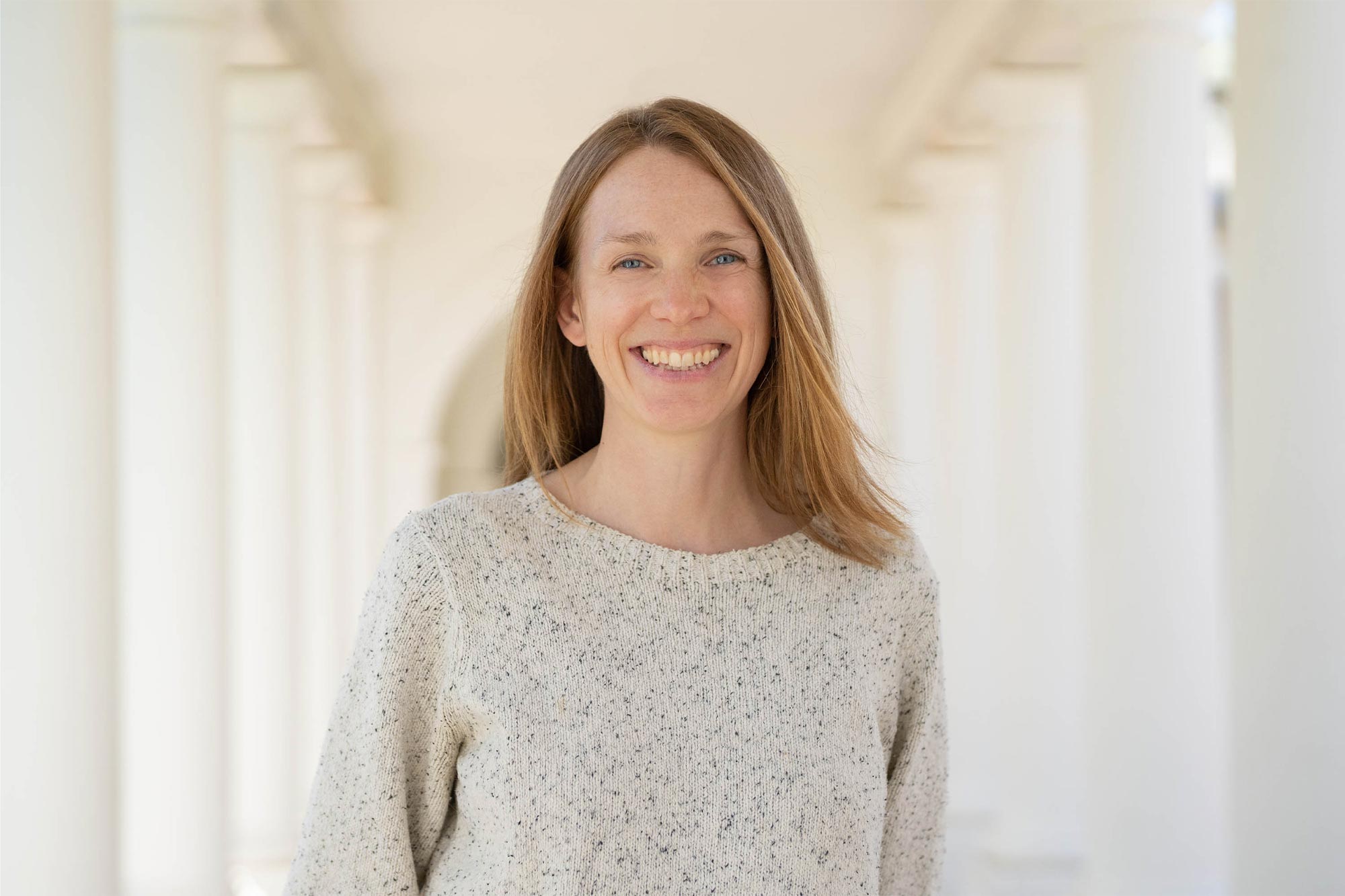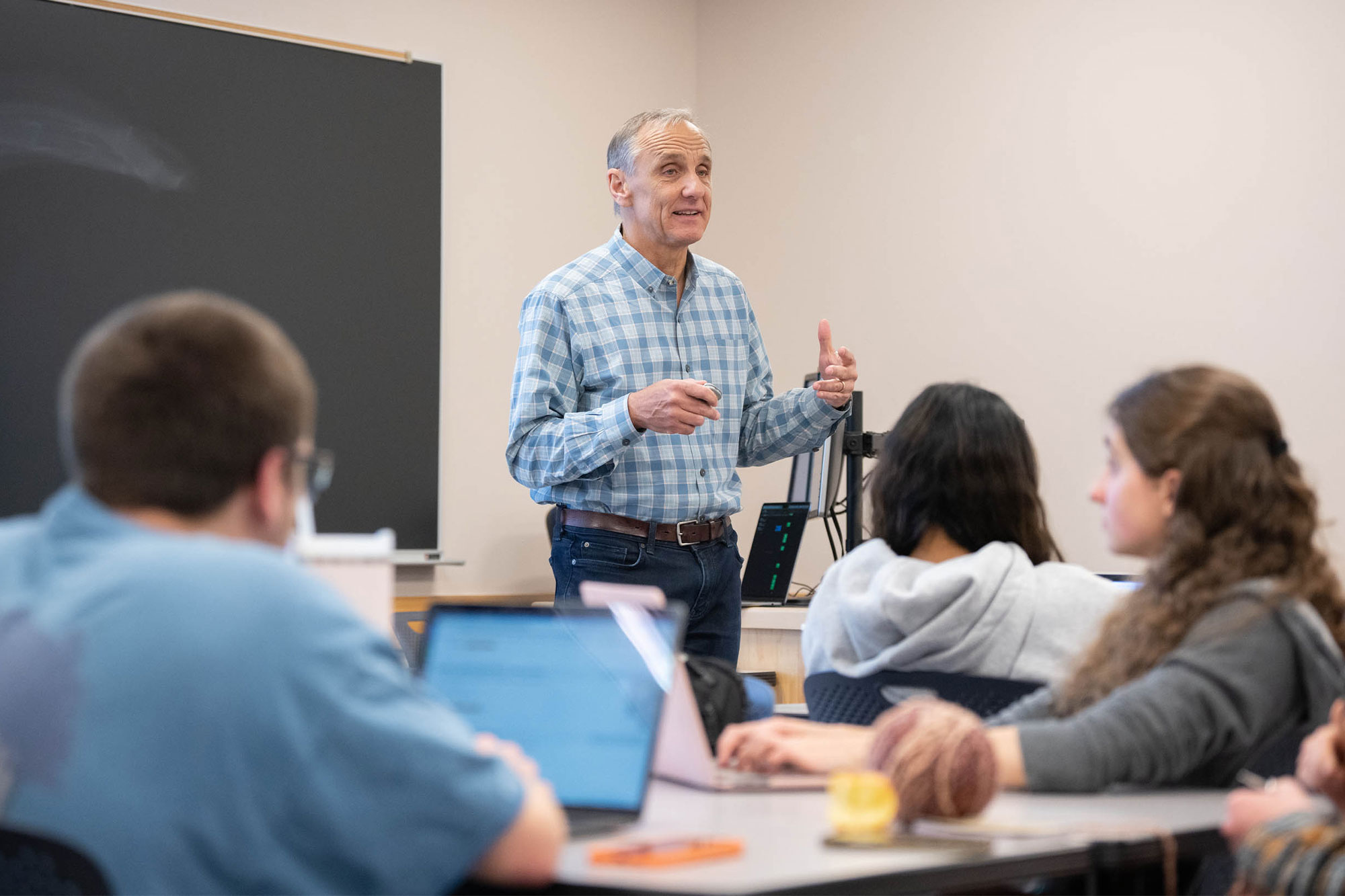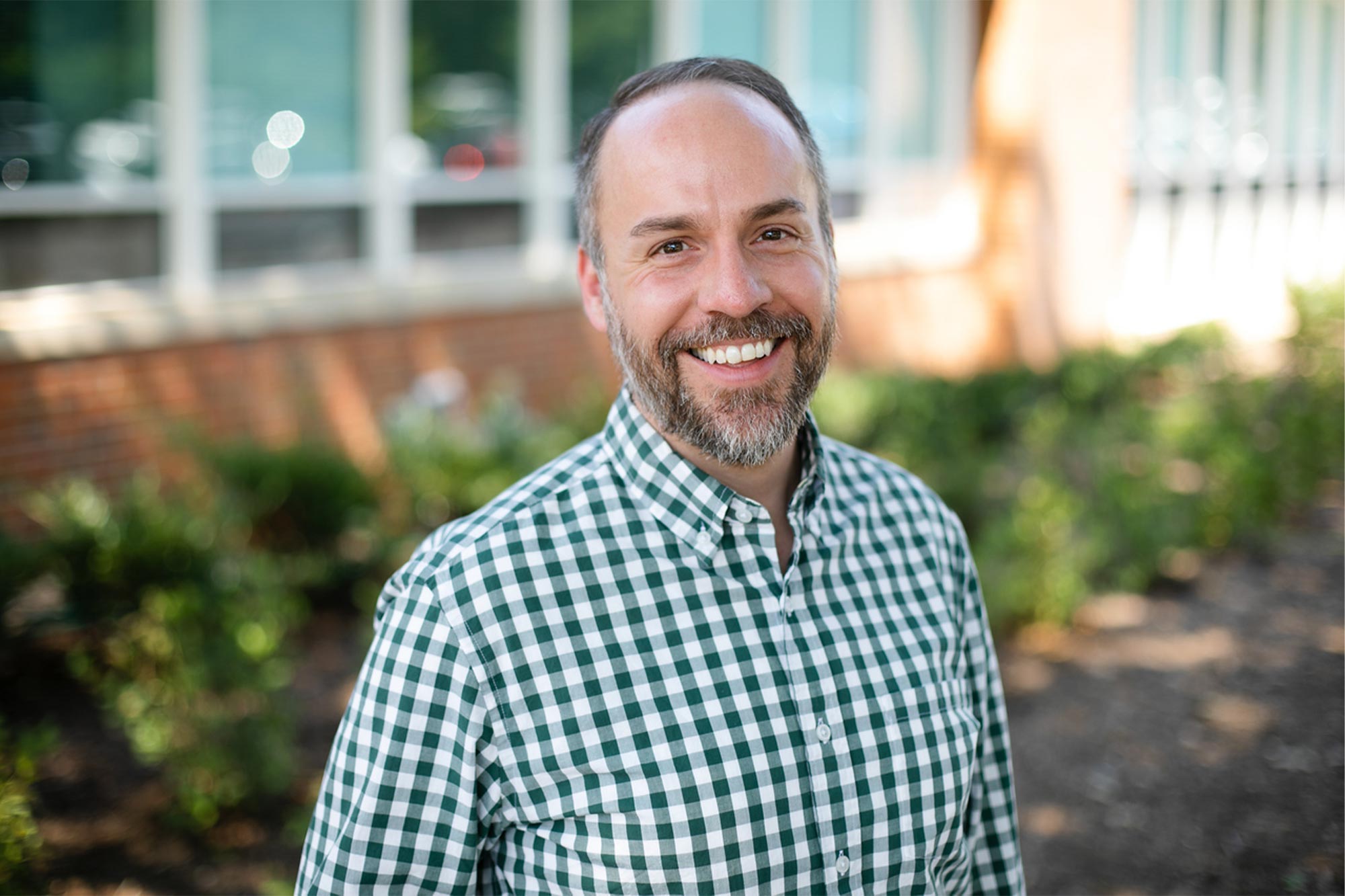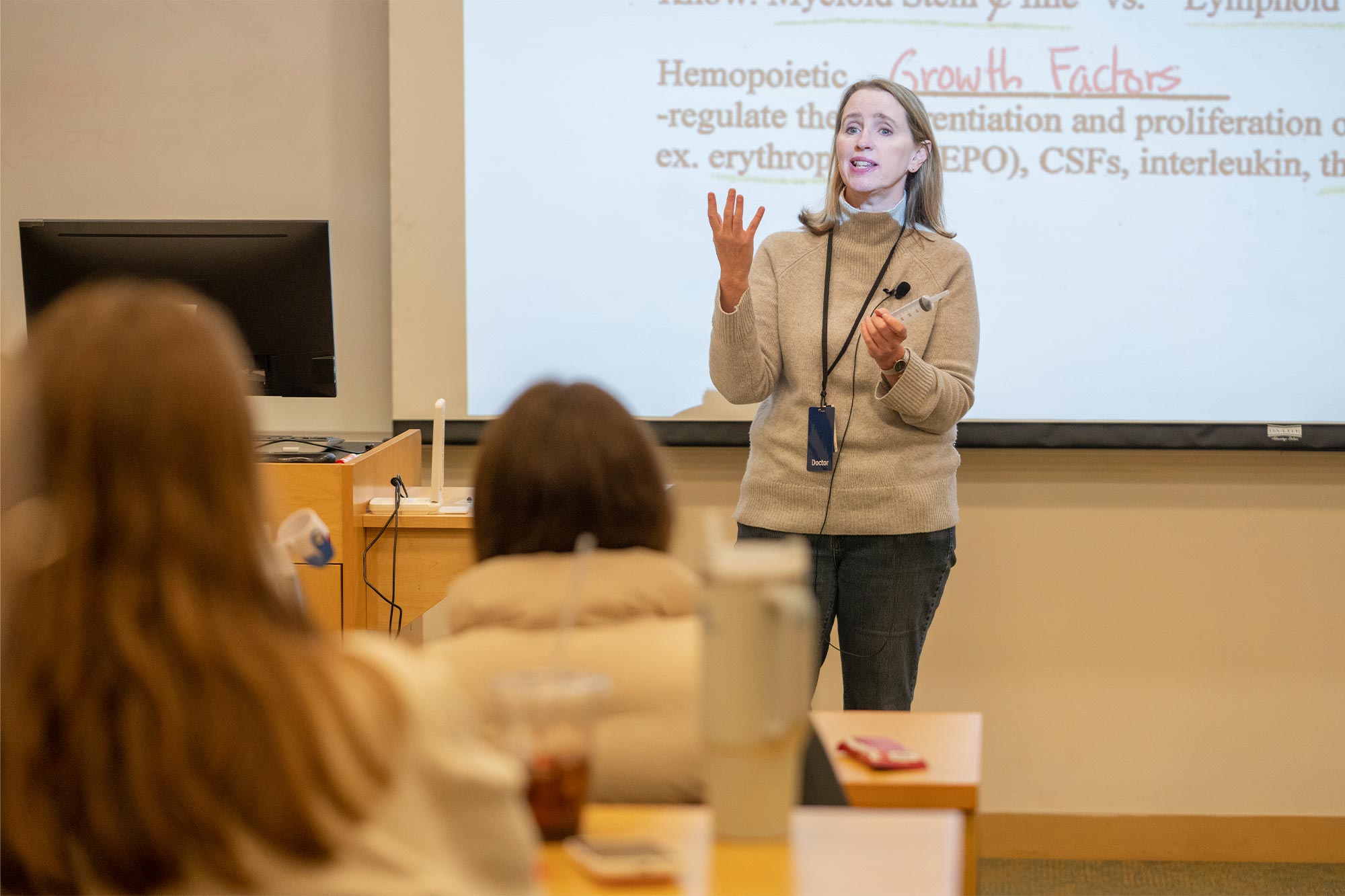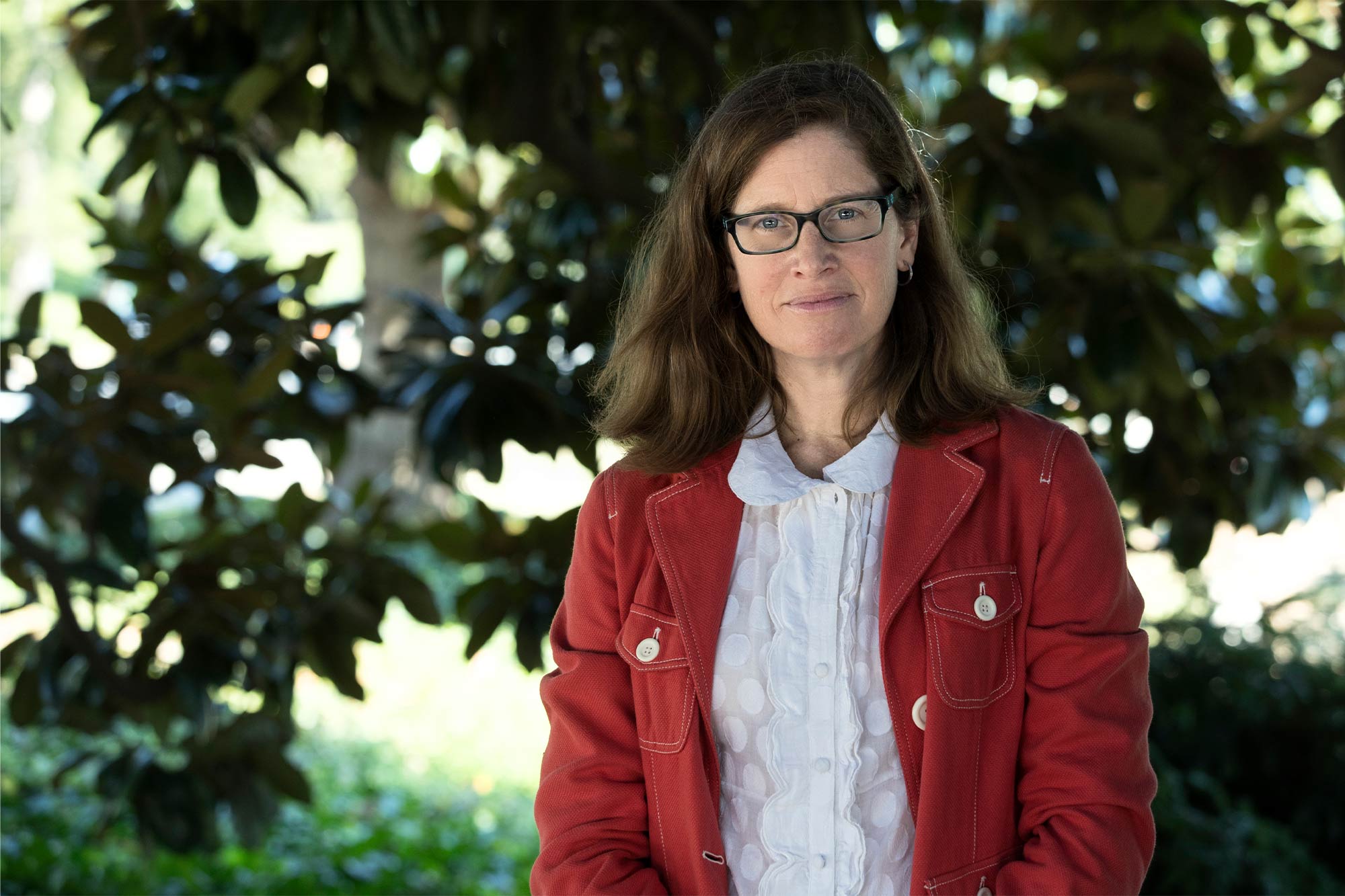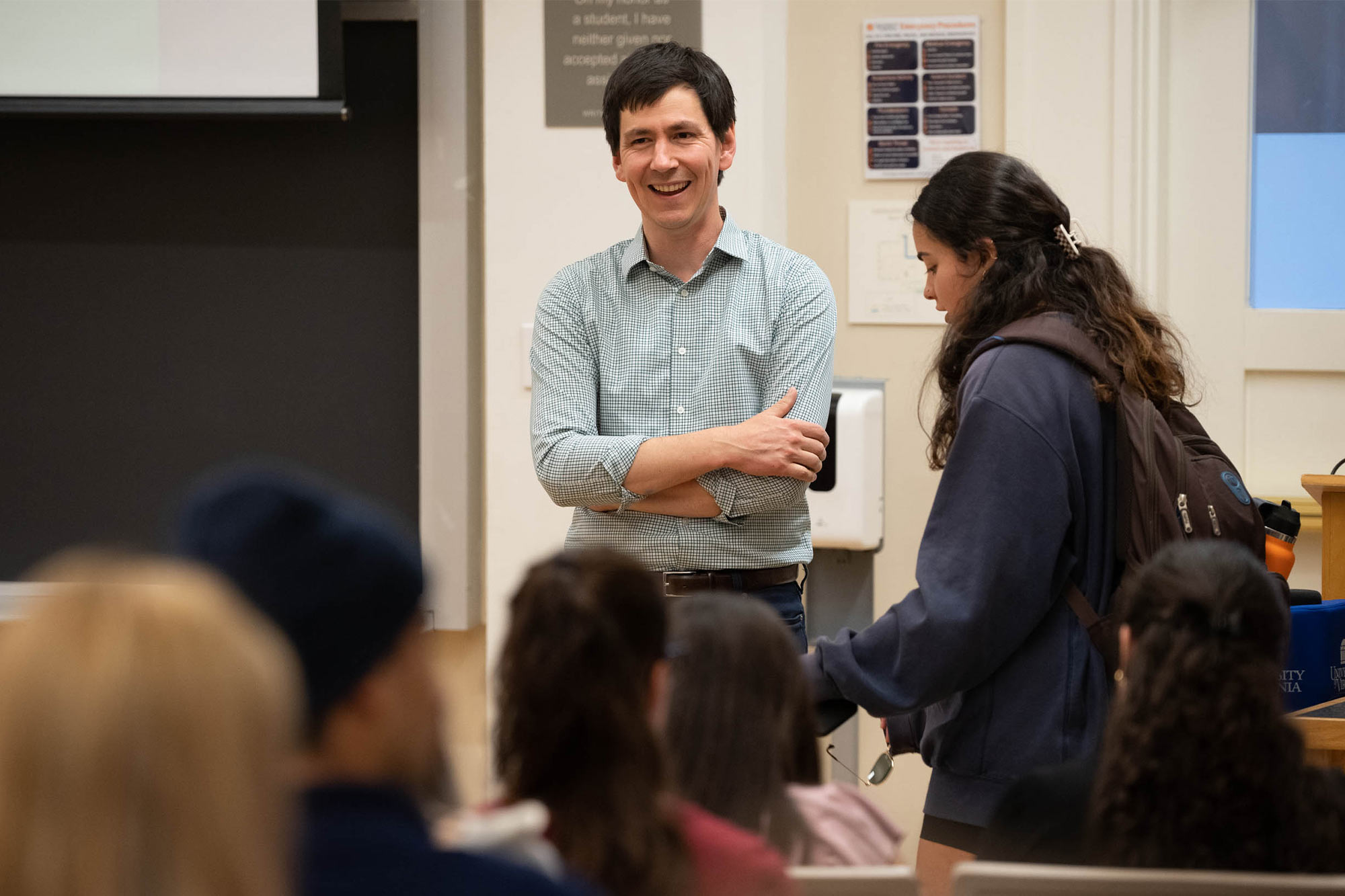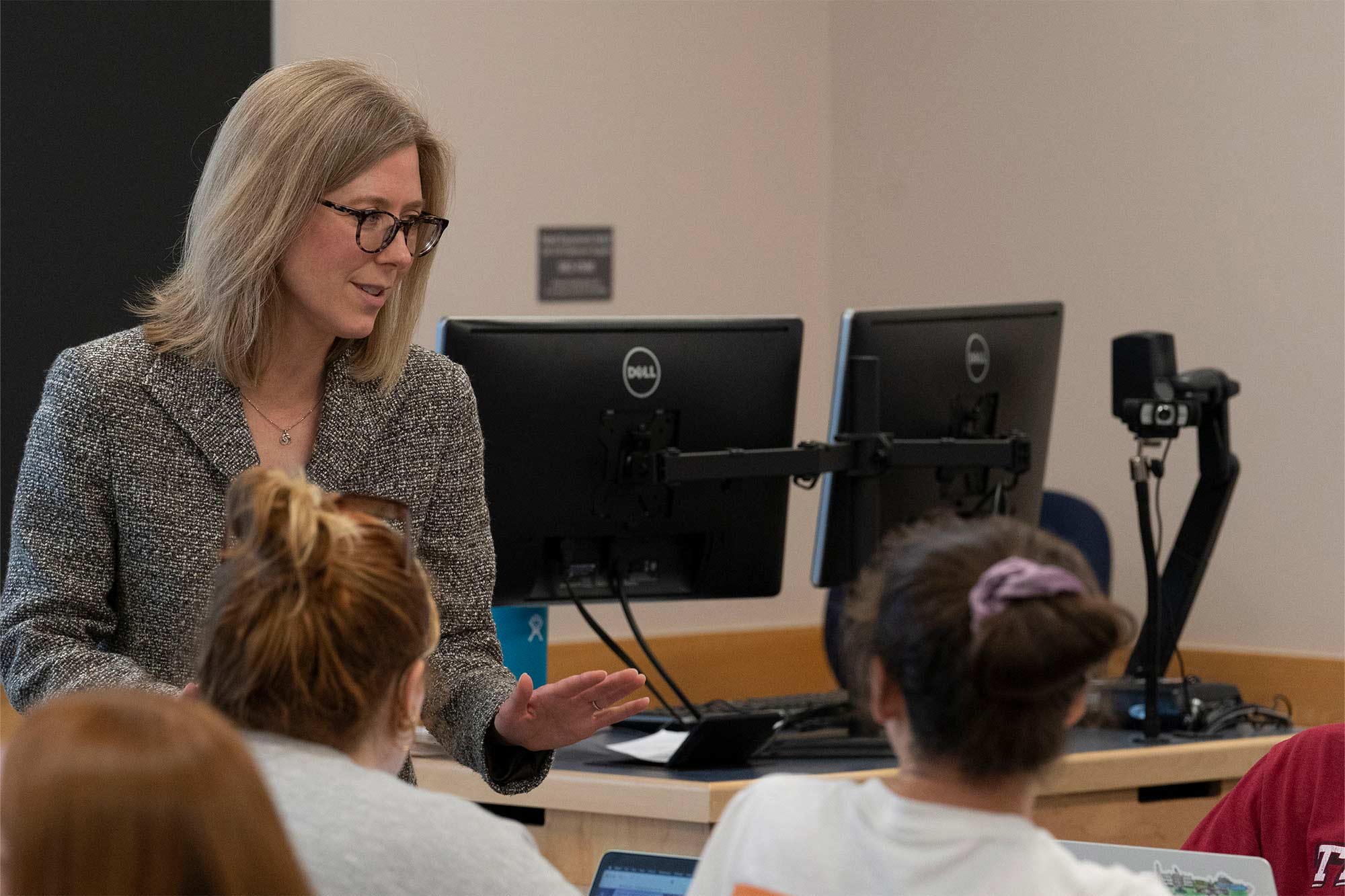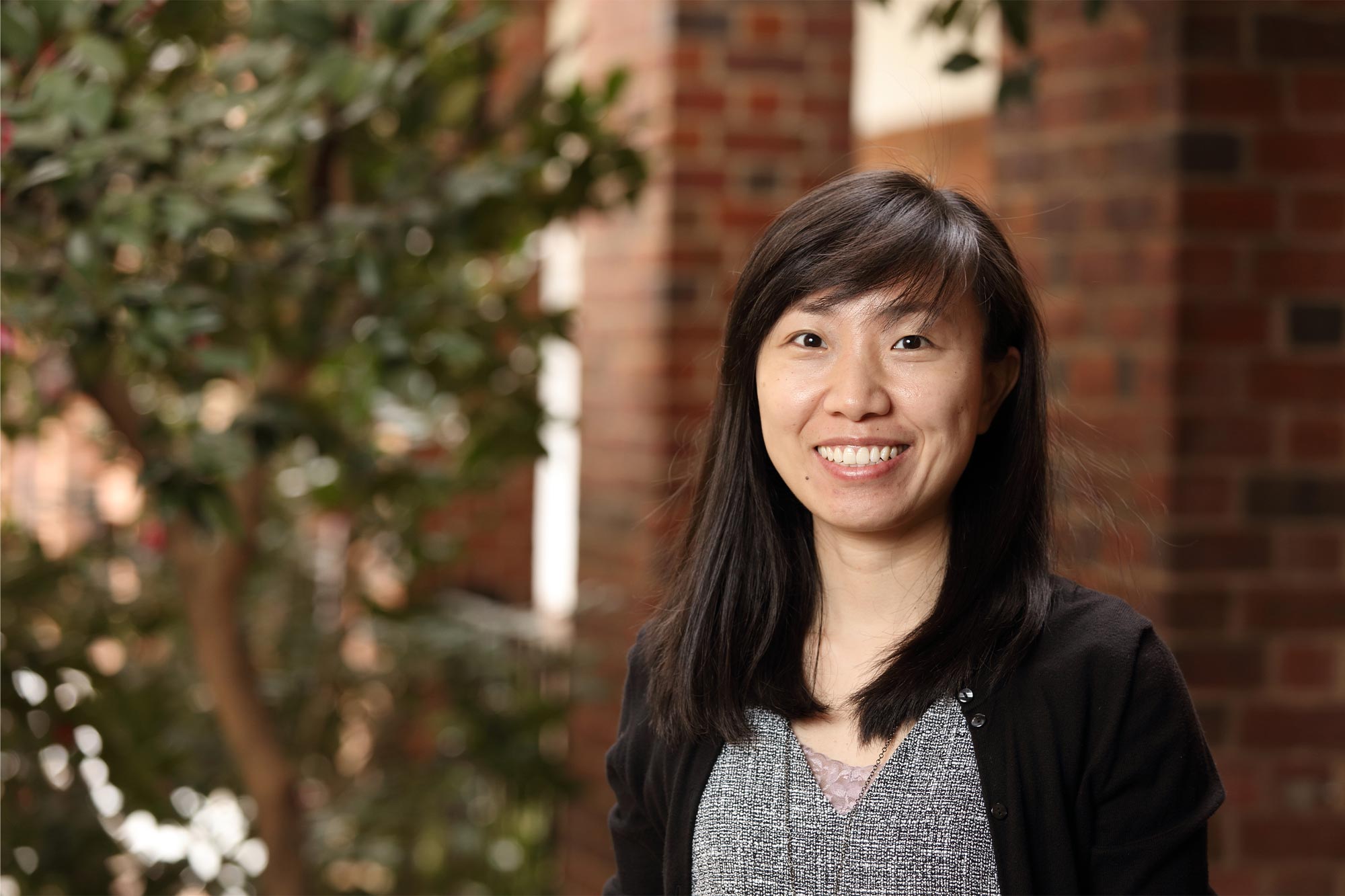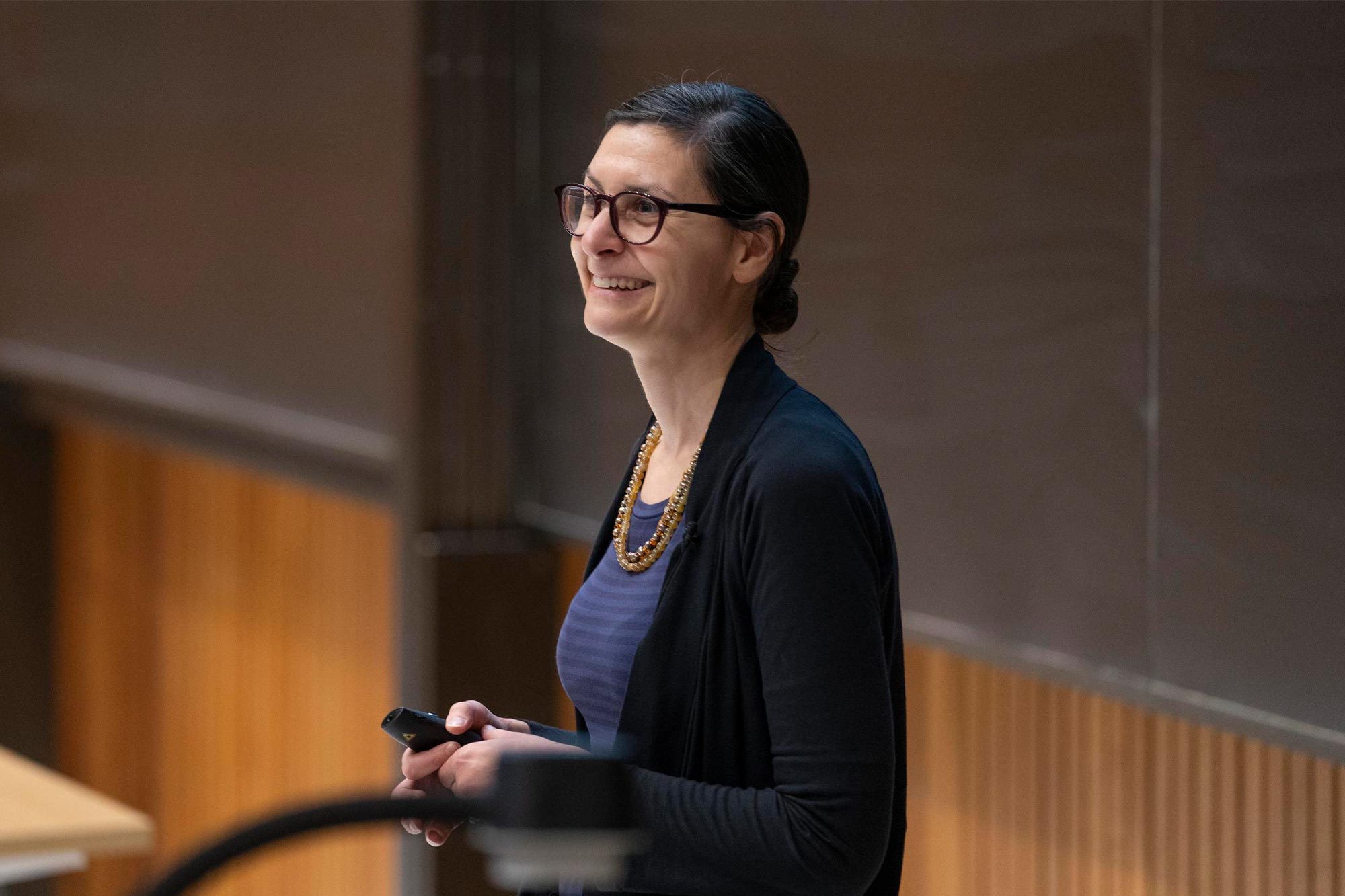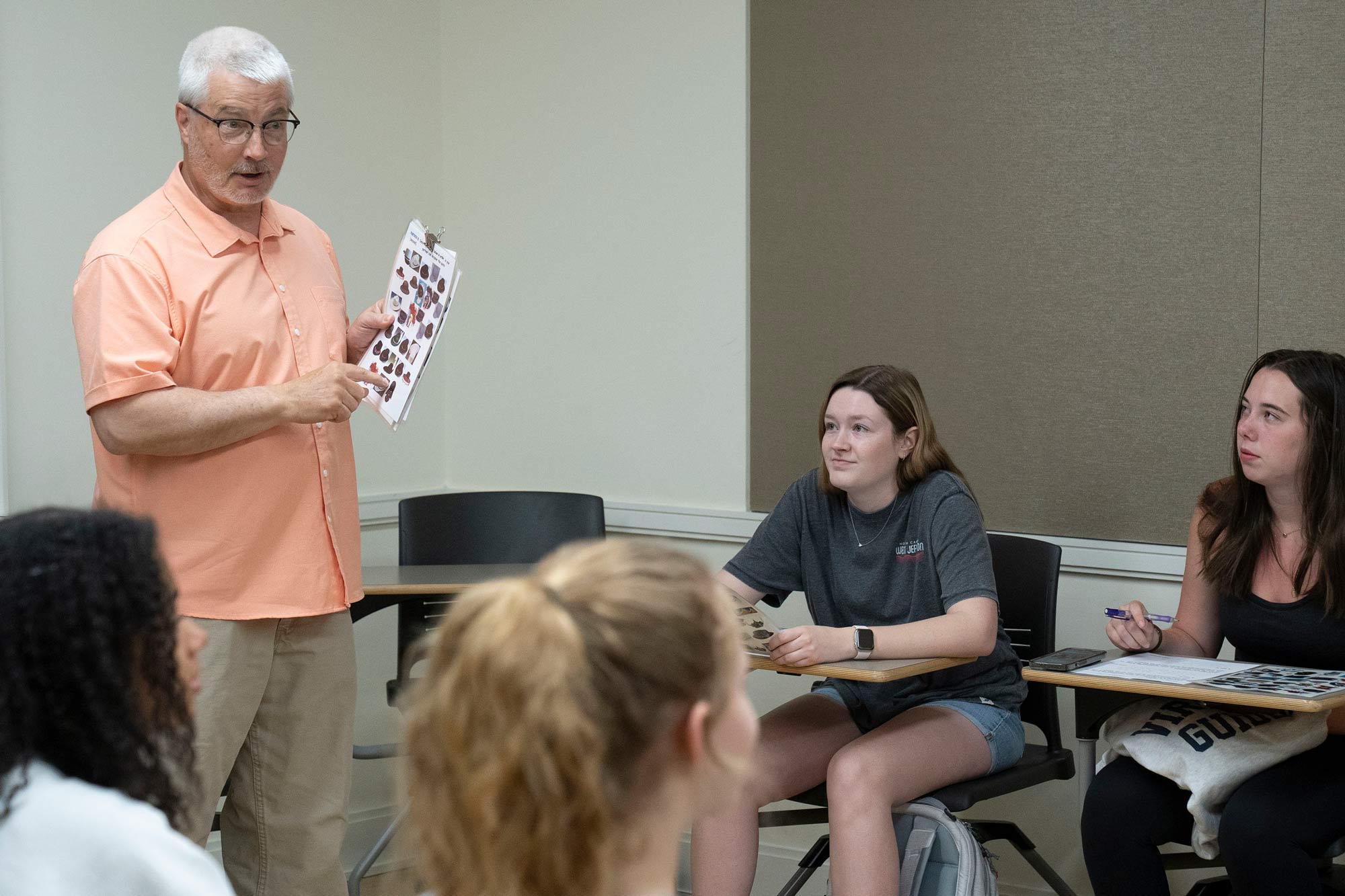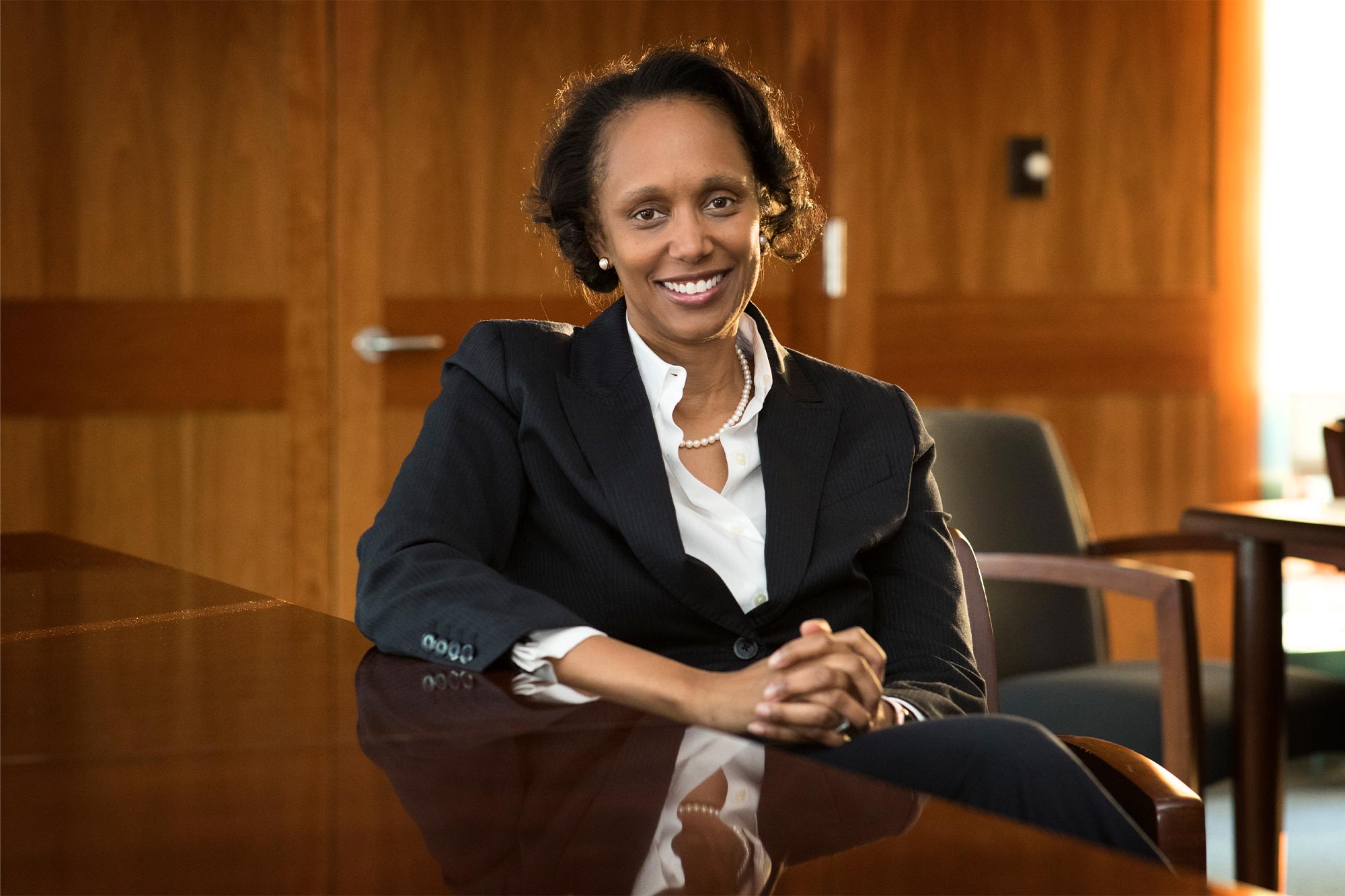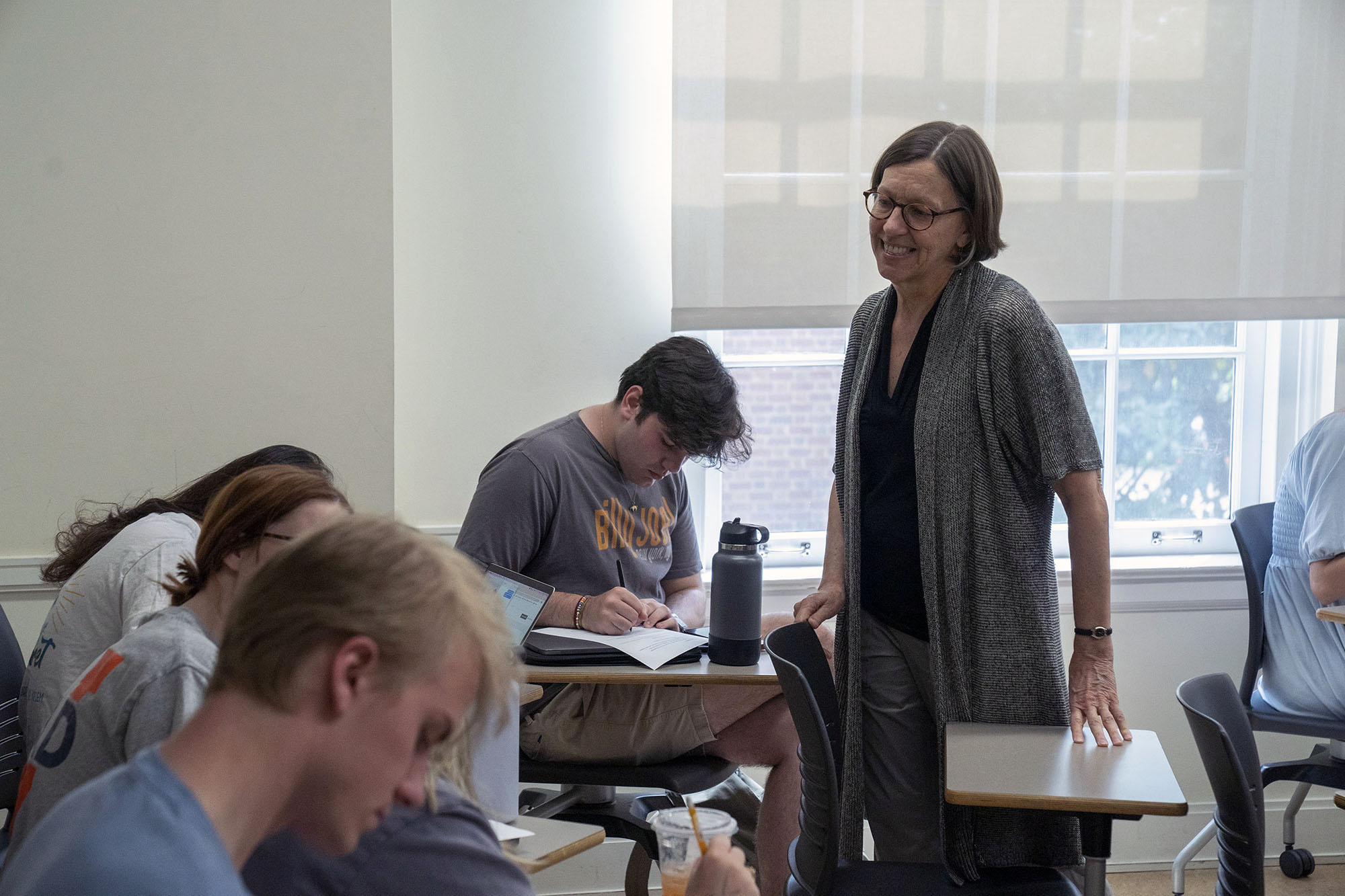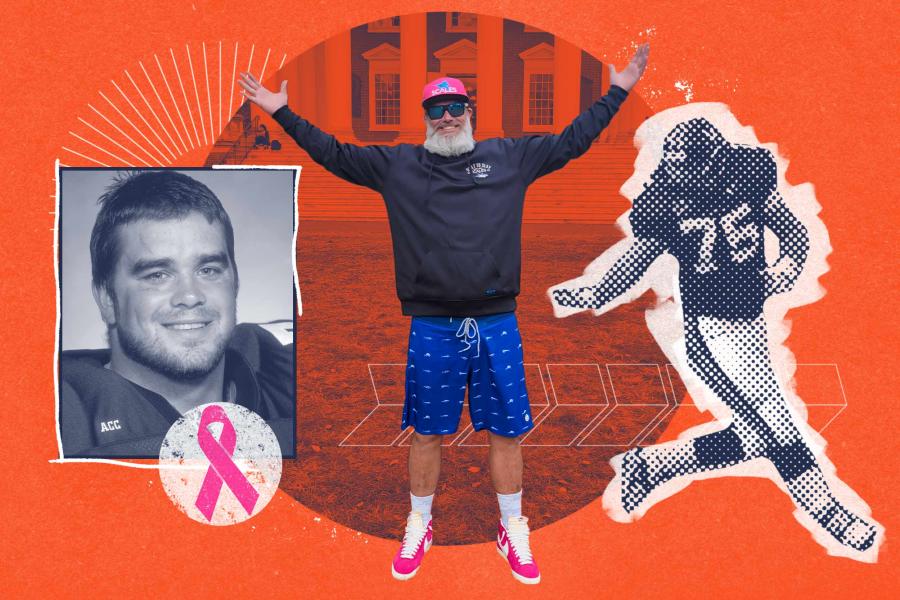Alumni Association Distinguished Professor Award
- Xiaochao Zheng, Professor of Physics, Arts & Sciences
Alumni Board of Trustees Teaching Award
- Mary Kuhn, Assistant Professor of Environmental Humanities, Arts & Sciences
All-University Teaching Awards
- Joseph Allen, Professor of Psychology, Arts & Sciences
- Chris Chang-Bacon, Assistant Professor, School of Education and Human Development
- Christine Connelly, Assistant Professor of Nursing, School of Nursing
- Bonnie Hagerman, Assistant Professor of Women, Gender & Sexuality Studies, Arts & Sciences
- Peter Johannessen, Assistant Professor of Public Policy, Batten School of Leadership and Public Policy
- Melissa Levy, Associate Professor, School of Education and Human Development
- Hui Ma, Assistant Professor of Applied Math, School of Engineering and Applied Sciences
- Jessamyn Manson, Assistant Professor of Biology, Arts & Sciences
- Gregory Propp, Assistant Professor of American Sign Language, Arts & Sciences
- Kimberly Robinson, Professor of Law, School of Law
- Karen Simroth James, Associate Professor of French, Arts & Sciences
A closer look at the winners:
Alumni Association Distinguished Professor Award
Xiaochao Zheng, Professor of Physics, Arts & Sciences
UVA students will tell you in a heartbeat: Physics here is an especially tough discipline.
Zheng wasn’t quite sure why. Of course, she loves physics, as do students who choose to major in it. But it concerned her that so many students seemed averse to it. Seeking answers in reading, research and the students themselves, Zheng shifted to an approach called the “active learning method” in her introductory course, in which students must work together in teams to solve coursework challenges, among other characteristics.
She piques student interest by framing physics as a science that answers fundamental questions, said one nominating colleague who provided text from Zheng’s class syllabus as an example: “Why does the sun shine? Why is sky blue? What is heat and what causes it? Can time flow backwards? Physics provides answers to all these questions, and many others you may have about the physical universe.”
Students consistently pointed to her meticulous preparation and ability to explain complex issues in understandable ways. They also uniformly praised her personal touch, and an ability to effectively help students of all levels in a course of study many initially find intimidating and difficult.
“When one of my friends did worse on the exam than would have been predicted by her performance on the homework problems and weekly quizzes, professor Zheng reached out to her personally to make sure she was OK and reassure her that she would be able to bounce back, with professor Zheng’s help,” former student Libby Terrel wrote in her letter of support.
“I hope I can inspire an appreciation for the beauty of physics in my course,” Zheng wrote in her teaching statement. “I hope such appreciation, which drives me to move forward day after day in research, can inspire my students to move forward with tenacity in their choice of profession as well, for such desire for learning and excellence is what we can motivate and inspire the best as faculty of [a research] university.”
Alumni Board of Trustees Teaching Award
Mary Kuhn, Assistant Professor of Environmental Humanities, Department of English
Kuhn’s colleagues credit her for almost singlehandedly introducing and developing the study of environmental humanities in UVA’s Department of English – but they also credit her for much more.
“She is an innovator of curricula, an engaging and supportive presence in the classroom, and a public-spirited teacher dedicated to the learning and well-being of her students,” English and American studies professor Anna Brickhouse said in her nominating letter.
Kiera A. Goddu, a student who studied under Kuhn in both her first and fourth years, said Kuhn equips students with skills that improve their writing and literary analysis.
“She also used reading assignments to ensure that students heard from and engaged with voices from all backgrounds,” Goddu said. “I became a stronger writer in her class my first year. I became a deeper thinker and more critical reader because of her in my fourth year.”
Kuhn, in her teaching statement, referenced a 2019 climate fiction course she taught. The subject matter included reading and analyzing fiction that imagined the worst-case climate change outcomes, an exercise that she said set up the students to consider through the semester how climate fiction “encourages us to think, and how it prods us towards action or avoidance.”
“I also believe that one of literature’s greatest capacities is to balance a knowledge of history with a sense of possibility – to help us think and feel through the big issues of our lives,” she wrote. “One of my goals is to help students learn to weather the thoughts and feelings that environmental stories, poems and other cultural objects elicit in them.”
All University Teaching Awards
Joseph Allen, Hugh P. Kelly Professor of Psychology, Arts & Sciences
In 2017, Allen launched Hoos Connected, a program and course designed to increase students’ sense of belonging and to foster connections among students across differences that may have created barriers. The program would prove particularly useful through the pandemic, and has grown to now serve more than 900 students a year.
Those who know Allen well are surprised neither by the program’s success nor Allen’s role in it.
In her letter of support, Alison Nagel, an assistant professor and director of the Hoos Connected program, said Allen opened his home to any student who needed a sense of comfort following the tragic shooting deaths of three students in November.
“In that moment, his students needed him to teach them how to cope, and he did just that,” Nagel wrote. “Joe’s particular brand of magic blends competence with likeability, expertise with compassion, knowledge with genuine curiosity.”
Allen takes great pride in the program, and wrote in his teaching statement that program evaluations have shown that it particularly benefits historically underserved student groups in increasing their sense of belonging, and reducing loneliness and depressive symptoms.
“My philosophy of teaching is based on the central premise that the most impactful and lasting learning occurs when teaching is oriented toward engaging the student as a whole person,” he said.
Chris Chang-Bacon, Assistant Professor, School of Education and Human Development
A teacher of future teachers, Chang-Bacon serves as a faculty member in the Secondary and English as a Second Language Teacher Education Program in the Department of Curriculum, Instruction and Special Education. He teaches and advises pre-service teacher education students enrolled in a one-year, intensive ESL licensure and Master of Teaching program.
Professor Michael Kennedy has observed Chang-Bacon’s classrooms and noted that his students “arrived fired up for class.”
“It struck me that his students are in training to spend a career serving children who are learning English for the first time after moving to America from various regions,” Kennedy wrote in his letter of support. “It takes a special type of person to take on that responsibility, and a visionary and evidence-based professor to inspire those future professionals. “
One of Chang-Bacon’s students wrote that her teacher and adviser consistently encourages students to share their personal experiences as part of his effort to bring diverse perspectives and experiences to the classroom. The net effect, she said, is “a safe and welcoming space for everyone to participate.”
In his reflective teaching statement, Chang-Bacon said, “I aim to guide aspiring teachers and researchers to recognize the historical shortcomings of U.S. schooling, while imagining new possibilities and pedagogies for historically marginalized youth.”
Christine Connelly, Assistant Professor of Nursing, School of Nursing
In her anatomy and physiology classes in the School of Nursing, Connelly is known for showing up with unusual items to help illustrate scientific concepts in ways that her students can more easily grasp. That might be in the form of a golf club or Legos or Play-Doh. But the traits that make Connelly an exceptional professor go far beyond these novel approaches.
“She encouraged our first-year nursing class to work together rather than compete against each other,” a former student wrote in support of the nomination. “My classmates became lab partners, study resources, and friends; and this mentality of teamwork became foundational to how we approached future nursing classes as well.”
Professor Cathy Campbell admired how Connelly worked to find new ways to present and teach anatomical models and specimens on iPads so students who took her class online during the pandemic would not miss a beat.
Connelly stresses her interest in making her classrooms inclusive, and her coursework accessible to all students, no matter their background. She makes a point to remember every student’s name on the first day of class – even in classes with 80 students or more – and addresses them by name when they leave.
“When I teach, I share my passion for knowledge and discovery,” she said in her teaching statement. “When my students leave with that same passion, while at the same time having come one step closer to their goals, I feel I have been successful.”
Bonnie Hagerman; Assistant Professor of Women, Gender & Sexuality Studies; Arts & Sciences
In one of her Women, Gender & Sexuality courses, Hagerman turns the tables a bit on her students. The assignment is called “One More Week,” and students are instructed to identify a topic they’d like to add to the syllabus if the course had just one more week added. Then Hagerman has the students write a paper on their selected topic.
That innovative approach, two of Hagerman’s colleagues said in a letter of support, “showcases how professor Hagerman integrates opportunities for students to exercise curricular decision-making power in the classroom – helping them to understand themselves as collaborators and partners in their own instruction and learning.”
One former student chose to take six undergraduate courses taught by Hagerman, concluding that one of the characteristics she found most admirable was her professor’s efforts to build community in each class.
“This community-building happened through group discussion, carefully chosen readings, and sharing stories about her own experiences as a competitive rower, former high school teacher, and mother,” the former student wrote. “Her classroom provided a space to learn respectful dialogue and get comfortable voicing our questions, opinions and stories. Her classes made me a better writer, more creative thinker, and better at drawing connections and seeing other perspectives.”
In her statement, Hagerman expressed joy in both teaching students and learning from them. And she described immense satisfaction in witnessing students grow from perhaps a position of self-doubt to one of personal confidence.
“I believe that one of my most important responsibilities as an instructor is to encourage and empower my students to share their voices and to get comfortable being visible,” she wrote. “Once students have become more at ease with their visibility and have embraced their voices, I want them not just to speak up, but to speak out.”
Peter Johannessen, Assistant Professor of Public Policy, Batten School of Leadership and Public Policy
Johannessen employs a teaching approach described as “scaffolding” in his Batten School courses. Working through group assignments, he introduces new, increasingly complex elements along the way that build and layer writing, analysis, collaboration and other skills needed to bring the project home.
While the lens is public policy, Johannessen said in his teaching statement that the goal is to empower students with a “growth mindset” that leads to skills that can be applied in any career choice.
“Instead of teaching a set of facts, I aim to provide students with tools and analytical skills that they can use to understand the world – and create change within it. In doing so, my teaching seeks to help all students, no matter who they are or what they want to be,” he wrote.
And no matter what personal challenges they might face.
Writing in support of his nomination, one student diagnosed with a learning disability said that her experience with Johannessen “has completely changed my life.”
“Professor Johannessen challenged me; he pushed me to recognize the potential I have. He has never once made me feel like my learning disability is a hindrance or a disadvantage. Rather, he has invested three years into ensuring that there is a safe space for me to learn and grow,” the student wrote. “The grace, patience, and support he exhibited to me has motivated me to pay that kindness and empowerment forward.”
Melissa Levy, Associate Professor, School of Education and Human Development
Levy both teaches in the School of Education and Human Development and leads its Youth and Social Innovation program. Supporters laud her effectiveness and creativity in each.
Dean Stephanie Rowley said Levy’s work promotes “active citizenry while also providing students with a framework and foundation to self-govern with greater thoughtfulness and responsibility.” Rowley credited Levy for striving to assign readings and to host speakers who bring true diversity of thought and experiences to her classrooms. Her faculty colleagues also credit Levy with dramatically increasing the enrollment and diversity of the YSI program.
Others who contributed to support her nomination described Levy as “a champion of students, a fervent learner, a compassionate leader.”
“What makes professor Levy so special is her ability to extend her compassion for her students beyond the classroom,” two students wrote. “Whenever we have a concern – whether it be about class scheduling, course content, or even our personal lives – professor Levy, despite not knowing the full scope of our problem, will mark out significant time in her schedule to check in with us.”
Levy, who also is deeply involved in UVA’s Center for Teaching Excellence, said she aims for students to feel connected to her, their classmates and others in the profession; to connect passionately with the subject matter; and to believe in their own value and what they have to offer.
“My hope is that these messages linger with students after class has ended: they matter and they have something of worth to bring forth into the world,” she wrote in her teaching statement.
Hui Ma, Assistant Professor of Applied Math, School of Engineering and Applied Science
Students excel in classrooms in which their teachers show genuine interest in them and find ways to put them in the best position to succeed. That’s one of many reasons why Ma has earned such a strong reputation as a teacher of applied mathematics courses, such as calculus.
In her teaching statement, Ma said she focuses on several steps to empower and enable students: fostering an environment with active participation, challenging students to develop key skills and habits, and having them apply them in practical settings.
“I am committed to helping my students build confidence in their own ability to apply mathematics in their engineering fields, to develop good habits of tackling problems and challenges as they arise, and to make learning mathematics a joyful and successful experience,” she wrote.
Ma is known for embracing opportunities to learn from experts and peers to apply proven and evidence-based techniques in her classes and to expand active learning in the classroom. She is currently involved in the Howard Hughes Medical Institute Inclusive Excellence 3 initiative learning community, which focuses on fostering students’ learning mindsets and a sense of belonging.
Ma’s genuine interest extends beyond the classroom.
Retired former colleague Manoucher “Mike” Mohajeri wrote, “For many years, Dr. Ma’s office was right next to mine and I could hear some of her conversations with students who met with her during her office hours. I was often impressed by her mentoring qualities of careful and respectful listening to her students, encouraging them to arrive at answers by themselves, and gently guiding them to solve their problems.”
Jessamyn Manson, Assistant Professor of Biology, Arts & Sciences
One of the courses Manson teaches includes a focus on biological evolution, so it seems almost fitting that colleagues supporting her nomination frequently cited her skill in evolving the entire biology curriculum and department.
In his nomination letter, Douglas Taylor, chair of the Department of Biology, wrote that Manson took over one introductory course “that was in a perennial state of disrepair, and is completely transforming the course and the way we teach it. As our director of undergraduate programs, her teaching innovations are serving as an incubator for teaching that works in biology, and her methods are percolating throughout our curriculum.”
Manson, in her teaching statement, said she strives to connect coursework with the real world. That included, for example, having students volunteer in the local community to witness things learned in the classroom as they appear in the local ecosystem. It included studying about the threat of invasive spotted lanternflies, which have recently appeared in this area. And it included studying the evolution of coronaviruses as a way to identify emerging disease threats.
“My personal teaching mission is to encourage students to think like a biologist by learning to observe, assess and analyze patterns and processes in the natural world,” she wrote.
Gregory Propp, Assistant Professor of American Sign Language, Arts & Sciences
Propp, who can hear, grew up in a household with deaf parents and a deaf brother, so American Sign Language, or ASL, can accurately be characterized as his native language. That background, and his experience as a sign language interpreter, positions him perfectly to be able bridge the Deaf and hearing worlds for his students, according to the nominating letter from Christopher Krentz, an associate professor of English and ASL.
Krentz credited Propp for being far more than an exceptional ASL teacher. He describes Propp as almost an ambassador for the Deaf community who facilitates gatherings, mentors students, helps fellow professors and provides a welcoming atmosphere for ASL community members and visitors alike.
“Crucially, he also treats Deaf people with humility and respect,” Krentz wrote. “All of the other six faculty in the ASL program are deaf, and Greg models for students the proper respect and affection for Deaf people they should convey.”
Colleagues also point out Propp’s advocacy for ASL students to reside in the Shea House, known as the house of languages, and his leadership in establishing an ASL minor in the department. He also coordinates a weekly signing lunch, where students can practice their sign language skills. One of his students said Propp took extra time outside of class to develop mock ASL interview sessions to prepare her for admissions and job interviews in Deaf environments.
Propp said he strives to create the best possible ASL program that gives students an opportunity to hone their signing skills while also developing an understanding and appreciation for Deaf culture.
“My classes and our program seek to provide the highest degree of ASL language instruction while encouraging extensive conversation among our students, resulting in the signing skills necessary to converse fluently with any deaf person they meet while in our program and later in life and careers regardless of their chosen profession,” he wrote in his reflective teaching statement.
Kimberly Robinson, Professor of Law, School of Law
School of Law Dean Risa Goluboff describes Robinson as “a national expert on education law.” But Robinson’s expertise and professional experiences along with her extraordinary investments in her students are what really allow her to excel with students.
“Professor Robinson succeeds through a rare blend of experience and passion,” Goluboff wrote in her nomination letter. “She spent several years litigating civil rights cases, and crafting public policy, including as an attorney at the U.S Department of Education. In the classroom, she marries this background with a deep commitment to pedagogy and to her subject matter. Students celebrate her thoughtful and evenhanded approach and capacity to get even reticent students to open up and engage.”
One student said she enrolled in a course after being inspired by Robinson’s reputation as “a fair, tough, and brilliant professor.” The experience did not disappoint.
“She has poured into this community and because of her presence, UVA Law is stronger and better,” the student wrote.
Robinson described the larger mission beyond teaching students about law, but also empowering them to become “social engineers” who will improve their communities and society.
“I challenge them to be the answer to the inequities and injustices of our nation’s education system,” she wrote. “They are the future boots on the ground and this course is their training ground.”
Karen Simroth James, Associate Professor of French, Arts & Sciences
In recent years, the University launched a French Department program called “UVA in Senegal.” Behind the scenes, James, one of the program’s biggest advocates, could not be more pleased.
UVA’s Language Program director and a longtime instructor of many French courses, James has taught many times in the UVA in Lyon program, and the University’s expanded presence in French-speaking locations outside of metropolitan France – such as Senegal – represents an ongoing effort to broaden the experience of UVA students studying French.
“Designing learning experiences that help students begin to comprehend the different cultural realities and world views of those who speak French around the globe is a core objective of my undergraduate teaching and informs my training and mentoring of graduate students who will carry these efforts forward in the future,” James wrote in her reflective teaching statement.
Writing to support the nomination, graduate students who have trained with James to start careers teaching French described the rigor, but also the unwavering support evident in her training programs. And they emphasized the value of James consistently seeking to broaden their awareness of French-speaking cultures and societies that are forever tied to France because of their language and history, but are richly independent as well.
“Rendering our courses more diverse, inclusive, and equitable is a task to which she is assiduously devoted, and an initiative that has helped our department not only to create more pertinent courses across levels, but also to reach students with a wide array of interests by approaching French studies with interdisciplinary and global perspectives,” one graduate student wrote.
